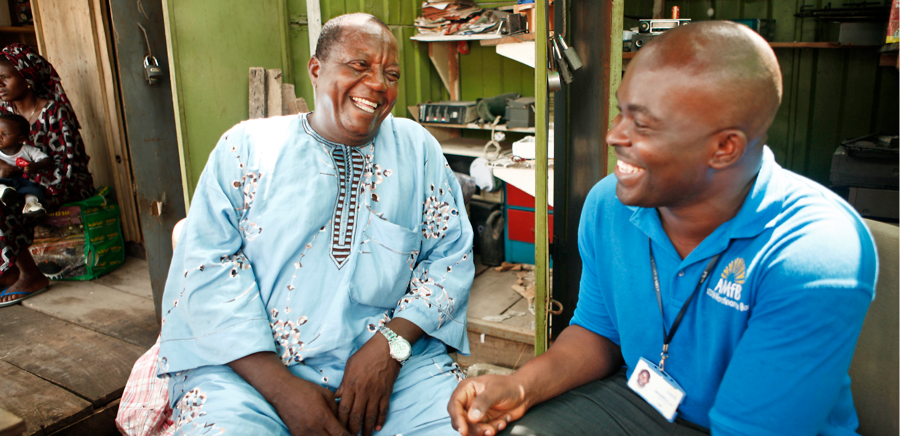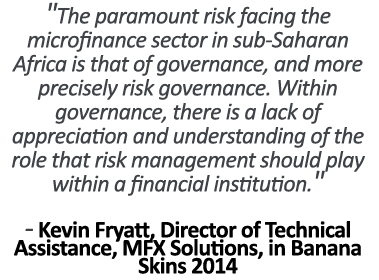
Good governance allows microfinance institutions to withstand and overcome the challenges of growth, increasing competition, and technological advances. Boards must be prepared to guide institutions in balancing client needs and services with financial performance.
 Although there are a handful of governance resources and initiatives, they are either one-off training sessions or are tailored to a corporate audience and not customized to the needs of microfinance institutions (MFIs). MFI boards are often diverse, with each member bringing unique strengths and experiences, but without a consistent understanding of governance standards and the board’s roles and responsibilities, particularly as they relate to serving clients at the base of the pyramid.
Although there are a handful of governance resources and initiatives, they are either one-off training sessions or are tailored to a corporate audience and not customized to the needs of microfinance institutions (MFIs). MFI boards are often diverse, with each member bringing unique strengths and experiences, but without a consistent understanding of governance standards and the board’s roles and responsibilities, particularly as they relate to serving clients at the base of the pyramid.
Weaknesses in governance and risk management were reported as two of the top four biggest risks faced by the microfinance industry in Africa, according to the 2014 Microfinance Banana Skins survey. Weak governance and poor risk management has played a role in microfinance crises in several countries. According to CGAP’s Growth and Vulnerabilities in Microfinance, MFI boards in Nicaragua, Morocco, Bosnia-Herzegovina, and Pakistan allowed or encouraged their institutions to follow a high-growth, high-return strategy that let internal controls, risk management, and staff quality fall by the wayside, leading to loan delinquency crises.
A separate study of 10 cases of MFI failure found, “The clearest and strongest conclusion derived from this study is that an institution’s governance structure proved to be the primary differentiating factor between those entities that overcame a crisis and those that did not.”  Earlier this year, Accion conducted a comprehensive technical needs and demand assessment to assess the key governance and risk challenges of MFIs in sub-Saharan Africa. Responses were collected from high-level microfinance stakeholders in over 15 countries, representing 27 institutions. It was clear from the results that governance and risk management weaknesses are an impediment to African MFI growth and sustainability. Respondents indicated managing sustainable growth, succession planning, and technology trends and innovations as the top three areas that could benefit from peer-to-peer exchange among board members and CEOs.
Earlier this year, Accion conducted a comprehensive technical needs and demand assessment to assess the key governance and risk challenges of MFIs in sub-Saharan Africa. Responses were collected from high-level microfinance stakeholders in over 15 countries, representing 27 institutions. It was clear from the results that governance and risk management weaknesses are an impediment to African MFI growth and sustainability. Respondents indicated managing sustainable growth, succession planning, and technology trends and innovations as the top three areas that could benefit from peer-to-peer exchange among board members and CEOs.
A selection of quotes from Accion’s Technical Needs and Demand Assessment survey:
- "I’ve found] most African boards don't understand their role and spend their time mired in operational details that are properly the responsibility of management.”
- “An unhealthy fixation on the bottom line.”
- “Monitoring of operational risks has been a problem as more skills are required to detect fraud, money laundering and internal fraud.”
- “Board members need to first buy into/support the mission of the institution. We discovered most of our Board members have different visions for the bank.”
- “The Board sits at a distance and relies on information supplied by the executives… [often] working without adequate details.”



